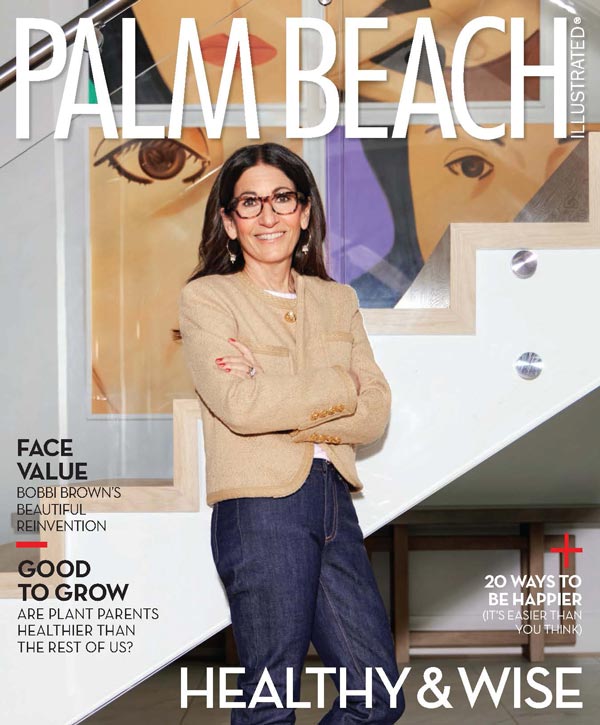When it comes to the Kravis Center, this is certainly the year of premieres. In addition to hosting Palm Beach Opera‘s Enemies, A Love Story, the Kravis is launching the new concert series Michael Feinstein Conducts the Kravis Center Pops Orchestra. The concerts celebrate the Great American Songbook with three programs personally selected by Feinstein and featuring music from MGM movies and by the great Gershwins, among others. The series includes Michael Feinstein’s Songbook on January 3, Michael Feinstein’s MGM Classics on February 24 and Michael Feinstein: The Gershwins and Me on March 30. PBI.com spoke with Feinstein about the American music he holds so dear.

PBI.com: How did you get started in conducting?
Feinstein: I have been conducting an orchestra in Los Angeles for the last two years, specifically the Pasadena Pops. When Marvin Hamslisch died, the management of the orchestra contacted me and asked if I would take over his post. I had never conducted before and I found the whole idea rather daunting. I had worked with many orchestras over the last several decades, but never as a conductor. However, I felt that that specific circumstance was such that I almost felt like Marvin was handing the mantle over to me. And so, I told them that I would try it and I, of course, would give it my all. It turned out be successful, and they subsequently engaged me for several years as the conductor of that orchestra.
How did you become involved with this new endeavor at the Kravis Center?
When I was last in Palm Beach performing at the Kravis, doing my regular annual appearance as a vocalist, I was telling W. Lee Bell [senior director of programming at the Kravis Center] about the experience of conducting. At that time, Bob Lappin had died, so there was an announcement that his orchestra would not continue. So, at that point, Lee and I started discussing the possibility of forming a new orchestra to not only present a pop series in Palm Beach but also to program the specific, unique pieces that I have discovered and performed with the Pasadena orchestra. One of the things that has bothered me about pops orchestras over the last many years, having worked with them, is that they often play generic and un-interesting arrangements, I have collected orchestrations for quite some time that are extraordinary and unique charts that I’ve always wanted the opportunity to perform live. So, this is an opportunity to bring to the Palm Beach audiences a program of music that they will not hear anywhere else.
What makes these arrangements so unique?
Many of them were created for films and have never been heard outside the context of the films. Or, the arrangements are done by Nelson Riddle, Billy May, Gordon Jenkins, and might have been recorded but were never performed publicly, or have only been performed once or twice throughout their history. And so, these are arrangements by the greatest arrangers of the twentieth century that have, in many instances, never been heard played by an orchestra live.
You once worked for Ira Gershwin. How did that experience affect the way you interpret his music?
I would not have a career performing Gershwin had it not been for the support and influence of Ira. Ira was 80 years old when I met him, and I was 20. And, even though I knew and loved Gershwin songs—uncharacteristically for a person of my generation in that time—I really learned the depth of interpretation that was possible through Ira’s gentle and loving coaching. He was a natural teacher and he never had any children, so I was like a grandson he never had. I got to spend six years with him, day in and day out, absorbing his craft, learning how he created a lyric and also being educated about his contemporaries, the other songwriters with whom he was friends who also were very important in my formative years.
What about this genre really grabs you?
It was an emotional response to the songs from a very early age. I was not consciously eschewing the contemporary music; it’s just that I listened to what appealed to my heart. Even when I was 6 or 7 years old, I preferred the harmonic palette of older songs and the strong melody in lieu of the contemporary music that I heard on the radio—it simply did not hold the same appeal. It was and is an emotional response.
Why do you think it’s important to perform works by American composers?
It’s generally accepted that what we now call the Great American Songbook is considered to be the greatest musical achievement that our country has produced. The songs by the Gershwins, Duke Ellington, Irving Berlin, Cole Porter, Fats Waller—you can go on and on—these writers created a unique sound that has represented us as a nation around the world for 100 years. And this music is special in that it captures the American experience in a way that is alive and breathing. The great thing about music is that it inspires, it opens the heart, it educates and gives us a broader sense of existence. And, because of that, the contribution of the American writers cannot be underestimated in importance. It’s music that has certainly changed my life and has changed the lives of many millions of others, and, therefore, I will always sing and perform it for as long as I can.









Facebook Comments